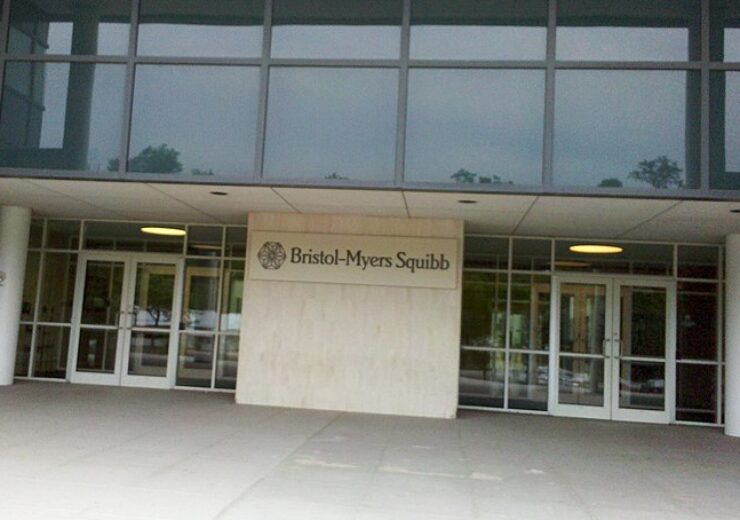The FDA approval is based on results from the Phase 3 QUAZAR AML-001 clinical trial, an international, randomised, double-blind study

Bristol-Myers Squibb building at 100 Nassau Park Boulevard. (Credit: Jonathan Schilling/Wikipedia.)
Bristol Myers Squibb has secured the US Food and Drug Administration (FDA) approval for Onureg (azacitidine tablets) to treat a type of acute myeloid leukaemia (AML).
The FDA indicated Onureg for the continued treatment of AML, in adult patients with first complete remission (CR) or CR with incomplete blood count recovery (CRi), after intensive induction chemotherapy and who could not to complete the curative therapy.
Onureg is an oral hypomethylating agent that incorporates into DNA and RNA, said to be the first and only FDA-approved continued AML therapy for patients in remission.
The drug works by a mechanism, believed to be hypomethylation of DNA, along with direct cytotoxicity to abnormal hematopoietic cells in the bone marrow. Hypomethylation would restore normal function to genes that are responsible for differentiation and proliferation of cell.
The US regulatory agency has granted priority review designation for the New Drug Application and the European Medicines Agency has validated a Marketing Authorization Application (MAA) for this indication in May 2020.
Bristol Myers Squibb chairman and chief executive officer Giovanni Caforio said: “The FDA approval of Onureg is the culmination of over a decade of research and 13 pre-clinical and clinical trials. We are grateful to the patients, families and caregivers who participated in and supported these trials, and who ultimately made today’s advancement possible.
“This milestone is representative of our commitment to helping patients with hard-to-treat cancers live longer, and the approval of Onureg as an oral therapy option for patients is more relevant now than ever as the world continues to navigate the Covid-19 pandemic.”
The FDA approval of Onureg is based on results from the Phase 3 QUAZAR AML-001 trial
The FDA approval of Onureg is based on results from the Phase 3 QUAZAR AML-001 clinical trial, an international, randomised, double-blind study in 472 patients, aged 55 years or older.
In clinical trial, treatment with Onureg showed a meaningful improvement in overall survival (OS) as compared to placebo. The primary endpoint of the study, Median OS from time of randomisation in the Onureg arm, was greater compared to patients in placebo arm.
The most common adverse reactions with Onureg include nausea, vomiting, diarrhoea, fatigue or asthenia, constipation, pneumonia, abdominal pain arthralgia, decreased appetite, febrile neutropenia, dizziness and pain in extremity.
QUAZAR AML-001 lead investigator Andrew Wei said: “Continued treatment with Onureg demonstrated an overall survival benefit in adults with AML who had achieved first complete remission in the QUAZAR AML-001 study and, notably, it has the potential to do this in a convenient manner, given its once daily oral formulation.
“This approval should help establish continued treatment with Onureg as a standard component of AML therapy for adults who achieved first complete remission following chemotherapy and who cannot proceed to intensive curative therapy, like hematopoietic stem cell transplant.”
